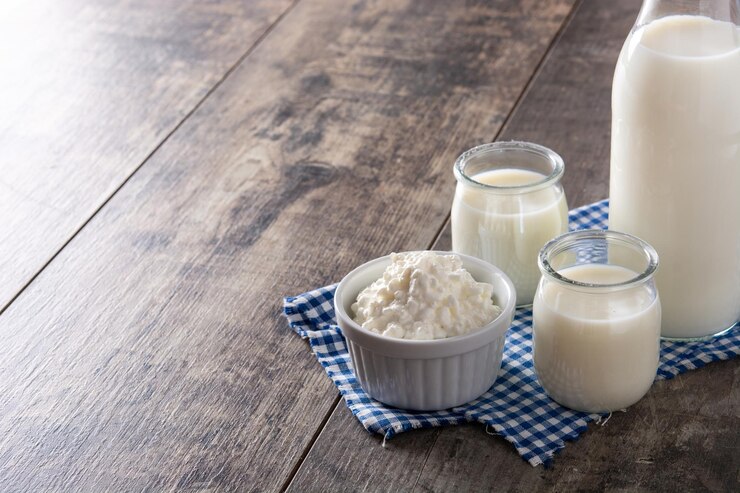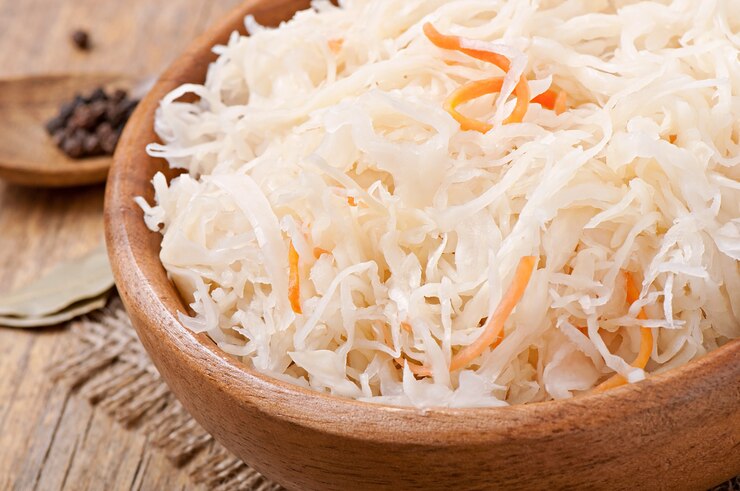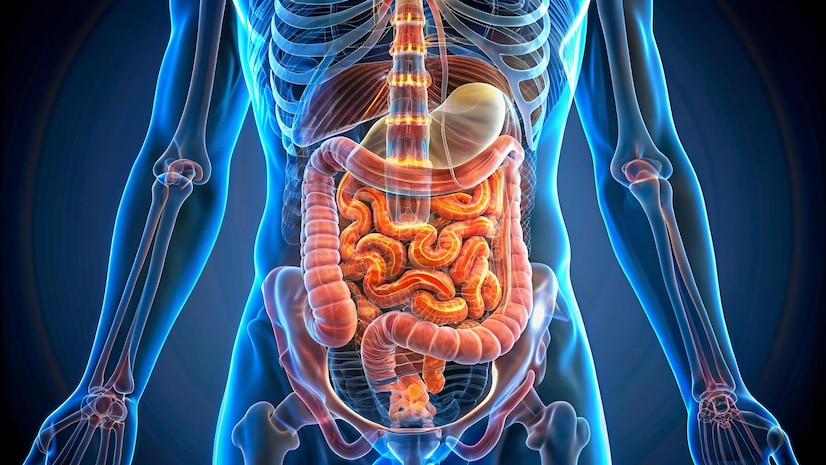1) Introduction:
Gut health is crucial for general health. A reasonable gut microbiome supports digestion, resistance, and emotional wellness. The gut is home to trillions of bacteria that guide nutrient absorption and keep a healthy immune system. At the point when this balance is disturbed, it can prompt different medical problems, including digestive problems and inflammation.
Maintaining Gut health includes incorporating specific nutrients and supplements. Gut health supplements can assist with reestablishing microbial balance. They frequently contain fundamental nutrients and useful bacteria. Prebiotics are fibers that support great gut bacteria, advancing their development. Probiotics, then again, are live beneficial microbes that can improve gut flora.
Furthermore, digestive health supplements can offer help for people encountering digestive uneasiness. These supplements can assist with mitigating side effects like bulging and gas. Focusing on Gut health through diet and supplements is fundamental for ideal health. A decent gut adds to better health and works on personal satisfaction.

2) How does Gut Health affect your Body?
- The Gut-Brain Connection: The gut and mind are firmly connected. This relationship is known as the gut-mind hub. The gut microbiome can impact the state of mind and mental clarity. An irregularity can prompt nervousness and misery.
- Immunity and Digestion: A healthy gut microbiome supports your immune system. It helps digest food and retain nutrients successfully. Advantageous bacteria in the gut can safeguard against harmful pathogens. A different microbiome is fundamental for ideal digestion.
- Key Signs of Poor Gut Health: Poor Gut health can appear in different ways. Normal signs incorporate bulging, gas, and irregular bowel movements. You may likewise encounter weakness, skin issues, and food intolerances. On the off chance that you notice these side effects, it could be an ideal opportunity to assess your Gut health.
Maintaining Gut health is fundamental for overall health. A balanced diet, rich in prebiotics and probiotics, can uphold a healthy gut microbiome. Keep in mind, that your Stomach related health influences your body in numerous ways. Focus on it for better physical and mental well-being.
3) Prebiotics vs. Probiotics: What’s the Difference?
- Prebiotics: Prebiotics are non-digestible fibers that feed beneficial gut bacteria. They assist with animating the development of good bacteria in your gut. Normal sources incorporate garlic, onions, bananas, and asparagus. Counting prebiotics in your diet improves your Gut health and in general absorption.
- Probiotics: Probiotics are live bacteria that give Health Benefits. They assist with keeping a healthy gut microbiome. Probiotics can further develop digestion and lift your immune system. Food varieties wealthy in probiotics incorporate yogurt, kefir, sauerkraut, and fermented tea.
- Role: Prebiotics and probiotics cooperate to advance Gut health. Prebiotics feed probiotics, assisting them with flourishing. This cooperative energy supports digestion and forestalls digestive issues. A decent gut microbiome can prompt better in general health.
- Best Probiotics for Gut Health: A few kinds of probiotics are known for their gut Health Benefits. Lactobacillus and Bifidobacterium are two well-known strains. They can assist with easing digestive messes, like IBS and looseness of the bowels. You can track down these strains in nutrients and fermented sources. Integrating both prebiotics and probiotics into your diet can prompt superior Gut health and health.
4) Top 8 Recommended Foods for Gut Health
4.1) Yogurt:
Yogurt is a heavenly and nutritious food loaded with probiotics. These useful bacteria assume an essential part in further developing gut flora. Consuming yogurt routinely can improve your digestive health.
- Benefits: Probiotics are live bacteria that offer Health Benefits. They assist with adjusting the gut microbiome by advancing healthy bacteria. This balance is fundamental for appropriate digestion and supplement ingestion.
- Digestive Health: Studies show that probiotics in yogurt can lighten digestive issues. These incorporate swelling, gas, and diarrhea. Yogurt can likewise support lessening the side effects of irritable bowel syndrome (IBS).
- Selection: Not all yogurts are made equivalent. Search for marks that state “live and active cultures.” This guarantees you are getting useful probiotics. Decide on low-sugar assortments to boost Health Benefits.
- Integration: You can enjoy yogurt in different ways. Add it to smoothies, use it as a garnish, or blend it in with Fruits. By including yogurt in your diet, you support your Gut health and overall well-being.
4.2) Kefir:
Kefir is a matured dairy item loaded with probiotics. It is produced using milk and kefir grains, which contain valuable bacteria and yeast. Consuming kefir routinely can upgrade Gut health fundamentally.

- Recommended Quantity: For ideal Gut health, it is prescribed to consume around 1 cup (240 ml) of kefir daily. This serving size gives a rich wellspring of probiotics that can further develop digestion and back the immune system. Begin with a more modest sum if you are new to kefir. Bit by bit increment your admission to permit your gut to change.
- Health Benefits: Kefir isn’t simply a probiotic-rich food; it likewise offers other Health Benefits. It is high in nutrients and minerals, like calcium, magnesium, and B vitamins. These nutrients add to general health and health. Also, kefir may assist with diminishing irritation and backing weight management.
- Inclusion: Incorporating kefir into your diet can advance a healthy gut microbiome. By consuming 1 cup every day, you can partake in its various Health Benefits. Make kefir a staple in your diet for further developed Gut health.
4.3) Sauerkraut

Sauerkraut is a Fermented foods rich in prebiotics and probiotics. It supports digestive health and lifts your resistant system. Integrating sauerkraut into your diet can upgrade gut microbiota.
- Nutritional Benefits: Sauerkraut is low in calories but high in nutrients. It is an amazing wellspring of vitamins C and K. The maturation interaction expands its probiotic content, which is crucial for Gut health.
- Recommended Quantity: To receive the rewards, go for 1/4 to 1/2 cups of sauerkraut daily. This sum gives adequate probiotics to help digestion. Begin with more modest bits assuming you’re new to fermented varieties. Steadily increment your admission to keep away from digestive distress.
- Inclusion: Sauerkraut can be enjoy d in different ways. Add it to plates of mixed greens, sandwiches, or as a side dish. It coordinates well with meats and can improve the kind of many dishes. Integrating sauerkraut into your diet is a simple method for advancing Gut health. Partake in its tart flavor while receiving the various rewards it offers.
4.4) Bananas:
Bananas are something beyond a helpful bite. They are a rich wellspring of prebiotics. Prebiotics feed the healthy bacteria in your gut. This helps advance better absorption and in general gut health.
- Healthful Advantages: One medium banana contains around 3 grams of dietary fiber. This fiber is essential for Gut health. It keeps up with standard bowel movements. Moreover, bananas are high in potassium, which supports heart health.
- Recommended Quantity: For ideal Gut health, mean to eat one to two bananas every day. This amount gives adequate prebiotics to help gut bacteria. Assuming you’re hoping to work on your digestive health, bananas can be an astounding expansion to your eating regimen.
- Integration: Integrating bananas into your diet can help your Gut health. They are tasty, nutritious, and flexible. Whether eaten alone or added to smoothies, bananas offer various advantages. Partaking in this organic product consistently can assist you with keeping a healthy gut microbiome.
4.5) Garlic:
Garlic is famous for its Health Benefits, especially for Gut health. As a strong prebiotic, garlic supports the development of beneficial gut bacteria. This balance is fundamental for a healthy digestive system and in general well-being.
- Nutritional Benefits: Garlic contains a compound called inulin, which goes about as a prebiotic. Inulin sustains great bacteria, assisting them with flourishing in the gut. Also, garlic is rich in cancer prevention agents, which battle oxidative pressure and irritation. These properties add to further developed Gut health and upgraded insusceptible capability.
- Recommended Quantity: To receive the rewards of garlic, hold back nothing 2 cloves each day. This amount is adequate to give prebiotic impacts without overpowering the digestive system. You can integrate garlic into different dishes, for example, soups, sautés, or salad dressings.
- Inclusion: Including garlic in your diet can essentially help your Gut health. Its prebiotic properties support beneficial bacteria, advancing digestive health. Make sure to enjoy garlic with some restraint for ideal advantages.
4.6) Kimchi:

Kimchi is a conventional Korean dish produced using fermented vegetables, fundamentally napa cabbage, and radishes. It is rich in probiotics, which are beneficial bacteria that help absorption and gut flora.
- Health Benefits: Kimchi contains fundamental nutrients like vitamins A, B, and C. The aging system improves the accessibility of these nutrients. Consuming kimchi consistently can advance Gut health, diminish inflammation, and reinforce the immune system.
- Recommended Quantity: To receive the rewards, go for the gold size of about ¼ to ½ cup of kimchi every day. This sum can give satisfactory probiotics to support digestive health.
- Integration: Kimchi can be enjoyed in different ways. Add it to servings of mixed greens, soups, or rice dishes for a delightful lift. You can likewise utilize kimchi in sautés or as a garnish for tacos. Incorporate kimchi into your dinners for better digestion and a better gut. Partake in the tasty flavors while helping your general health!
4.7) Chia Seeds:
Chia seeds are small but powerful superfoods. They are rich in fiber, which advances healthy digestion. Adding them to your diet can upgrade Esophagus health and further develop consistency.
- Recommended Quantity: The best day-to-day admission of chia seeds is around 1 to 2 tablespoons. This amount gives sufficient fiber without overpowering your digestive system. One tablespoon contains around 5 grams of fiber, which is around 20% of the suggested day-to-day admission.
- Note: You can undoubtedly add chia seeds to smoothies, yogurt, or cereal. They likewise function admirably in prepared products or as a thickening specialist for soups. Splashing chia seeds in water or milk makes a gel-like surface. This makes them ideal for puddings or as a garnish.
- Benefits: Chia seeds offer extra Health Benefits. They are high in omega-3 fatty acids, cell reinforcements, and fundamental minerals. Incorporating chia seeds into your diet can support by and large health and well-being.
4.8) Whole Grains:
Whole grains are fundamental for maintaining digestive health. They are wealthy in fiber, which advances regular bowel movements. Fiber prevents blockage and supports overall gut capability. Integrating Whole grains into your diet can prompt better digestion and expanded supplement ingestion.
- Recommended Quantity: The Dietary Guidelines for Americans suggest no less than 6 servings of grains each day. Go for the gold portion of these to be Whole grains. A serving size commonly incorporates one cut of Whole-grain bread or a portion of a cup of cooked earthy-colored rice.
- Advantages: Whole grains give fundamental nutrients and minerals, including B nutrients, iron, and magnesium. They likewise contain cancer prevention agents that assist with decreasing inflammation. This can additionally improve Gut health and by and large well-being.
- Inclusion into the diet: Integrate Whole grains into your feast by picking brown rice, quinoa, and Whole wheat pasta. You can likewise nibble on air-popped popcorn or Whole grain saltines. These little changes can essentially influence your digestive health and overall sustenance.
5) Gut Health Supplements to Consider
Maintaining stomach-related health is fundamental for general well-being. Various Gut health supplements can improve digestive capability. This article investigates famous choices that help a healthy gut.
- Overview: A few Gut health nutrients are generally perceived for their advantages. Probiotics and prebiotics are at the front. Probiotics bring helpful bacteria into the gut, while prebiotics act as nourishment for these bacteria. Together, they advance a reasonable gut microbiome.
- Diet Support: Digestive health supplements can supplement a balanced diet. They assist with further developing digestion and supplement retention. These supplements might decrease bulging and distress after dinners. Furthermore, they can uphold safe health by keeping a healthy gut hindrance.
- Specific Supplements: Consider supplements like lactobacillus and bifidobacterium probiotics. These strains are compelling in advancing Gut health. For prebiotics, inulin and fructo-oligosaccharides are great decisions. They feed the advantageous bacteria in your gut.
6) Best Probiotics for Gut Health
Probiotics are advantageous bacteria that help Gut health. Picking the right strains can resolve specific digestive issues. Here is a glance at probably the most ideal probiotics that anyone could hope to find today.
- Lactobacillus rhamnosus: This strain is compelling for diarrhea and may decrease the side effects of irritable bowel syndrome (IBS). It reestablishes gut flora balance after antibiotic use.
- Bifidobacterium Longum: Known for its capacity to reduce constipation, Bifidobacterium longum additionally supports the immune system. This strain is advantageous for by and large digestive health.
- Saccharomyces boulardii: An interesting yeast-based probiotic, Saccharomyces boulardii is magnificent for battling diarrhea. It additionally assists with travel-related digestive issues.
- Lactobacillus acidophilus: This strain supports lactose digestion and can help alleviate swelling. It is many times tracked down in yogurt and fermented sources.
- Prebiotics versus Probiotics: Prebiotics are non-absorbable fibers that feed probiotics. Incorporating both can improve gut Health Benefits.

7) Conclusion:
In summary, Maintaining with Gut health is fundamental for in general well-being. Key food varieties to remember for your diet are fiber-rich Fruits, vegetables, and Whole grains. Fermented foods like yogurt, kefir, and sauerkraut give helpful probiotics. These probiotics support a healthy gut microbiome and digestion. Integrating prebiotic foods, like garlic, onions, and bananas, feeds beneficial gut bacteria.
A balanced diet is critical for ideal gut capability. Join prebiotics, probiotics, and digestive health nutrients for the best outcomes. Remain hydrated and limit processed food sources to help your gut. Keep in mind, that little dietary changes can prompt huge upgrades in Gut health. Follow careful choices to support your body and advance a healthy digestive system. By focusing on Digestive health, you can improve your general health and vitality. Embrace these gut-accommodating food varieties for a more joyful, better life!
8) FAQs
The best food varieties for Gut health incorporate yogurt, kefir, sauerkraut, garlic, onions, bananas, asparagus, and oats.
Probiotics inform valuable bacteria in your gut, further developing digestion and supporting a healthy microbiome.
Indeed, fiber-rich food varieties advance healthy bowel movements and feed beneficial gut bacteria, upgrading general Gut health.
Stay away from extremely processed food varieties, excessive sugar, and artificial sweeteners, as they can disturb gut bacteria balance.
Improvements can occur within a few days to weeks of adopting a gut-friendly diet, depending on individual factors.


